How to unblock any sink using simple DIY methods
DIY Plumbing MaintenanceHome Maintenance
Fusion Plumbing & Electrical Services
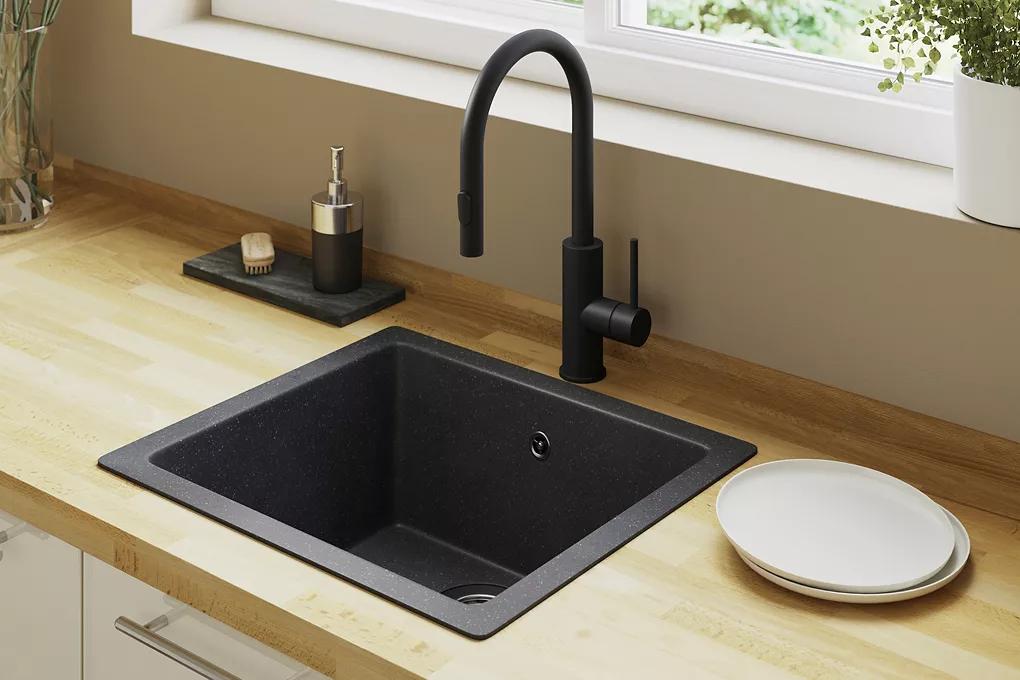
Blocked sinks are a common household issue that can be frustrating to deal with. Before you call a plumber, try out these simple methods to unblock your sink. With just a few household items and a bit of effort, you can save yourself both time and money.
Quick tip
Before trying any of the following methods, check for any visible blockages in your sink. Sometimes, the issue can be as simple as removing food scraps, hair, or other debris from the drain, which might clear it up without needing further steps. A quick check can save you time and effort if this is the only cause of the blockage.
Here are some practical options to help you clear that blockage and get your sink draining smoothly again:
Option 1: Boiling water
Boiling water can be an effective solution for minor sink blockages caused by grease or soap residue. The high temperature helps to soften and break down these materials, allowing them to move through the pipes more easily. This method is especially useful for clogs near the surface or in the first stretch of the drain. Pouring boiling water in stages can often clear the blockage without needing additional tools or chemicals.
Start by bringing a kettle of water to a full boil. Carefully pour the boiling water directly down the sink drain in stages, giving it a moment to work between each pour. Repeat this process two to three times if needed, as the hot water breaks down and flushes away any softened build-up.
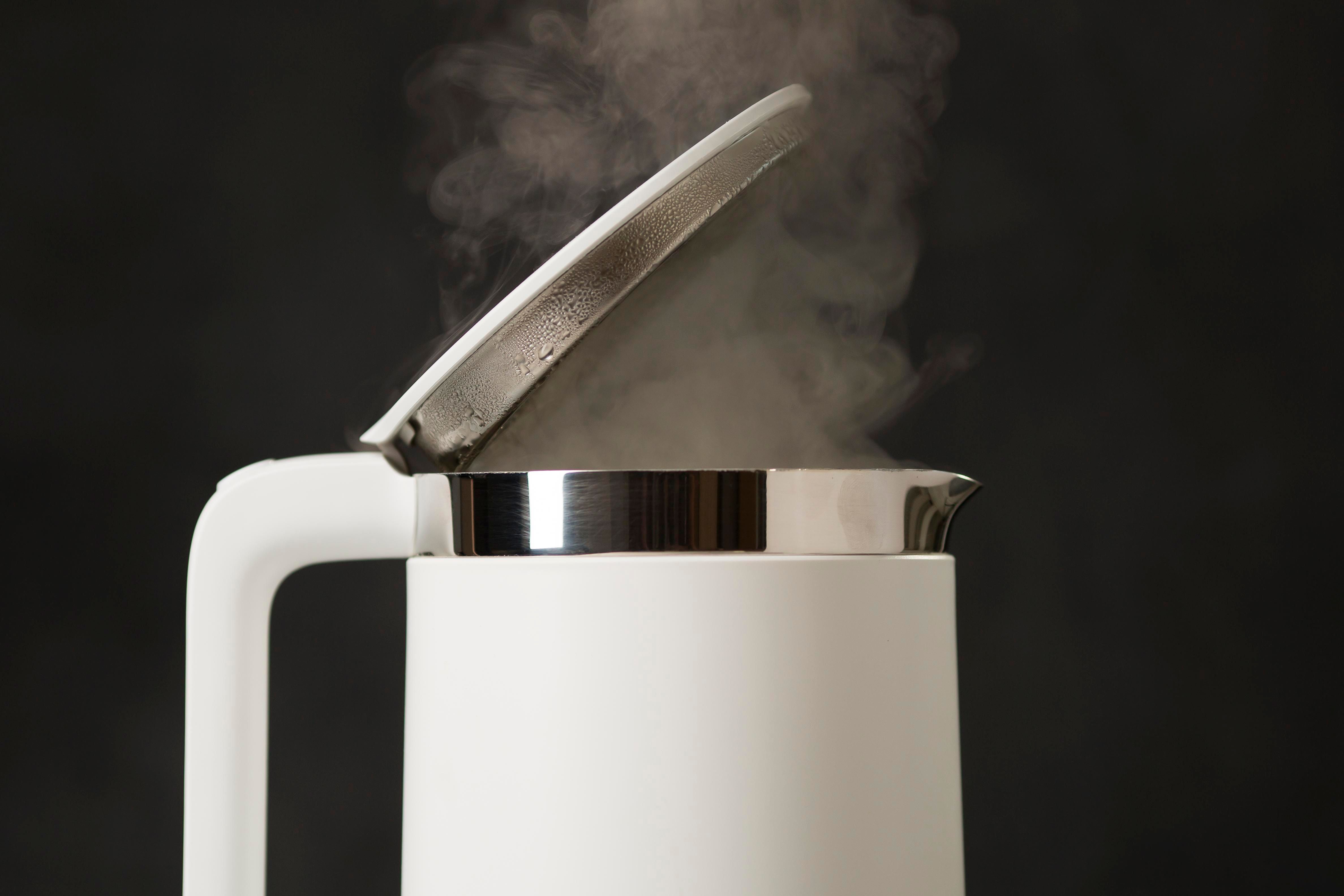
Option 2: Baking soda and vinegar
The combination of baking soda and vinegar is a powerful, natural solution for clearing sink blockages caused by grease, soap scum, or mild organic buildup. When these two ingredients mix, they create a fizzy reaction that can loosen debris and help move it through the pipes, making it an eco-friendly alternative to harsh chemicals.
Steps to unblock your sink using baking soda and vinegar:
Before You Start: Make sure to remove any visible blockages, like food scraps or hair, from the drain. This will help the baking soda and vinegar work more effectively on deeper clogs.
- Step 1: Pour about half a cup of baking soda directly down the sink drain.
- Step 2: Slowly add half a cup of vinegar over the baking soda. You’ll notice it fizzing as the reaction starts to break down the clog.
- Step 3: Allow the mixture to work for 15–30 minutes, giving it time to loosen the blockage.
- Step 4: After waiting, flush the drain with hot water to rinse away any remaining debris.
- Step 5: For tougher clogs, you can repeat the process to help clear the blockage fully.
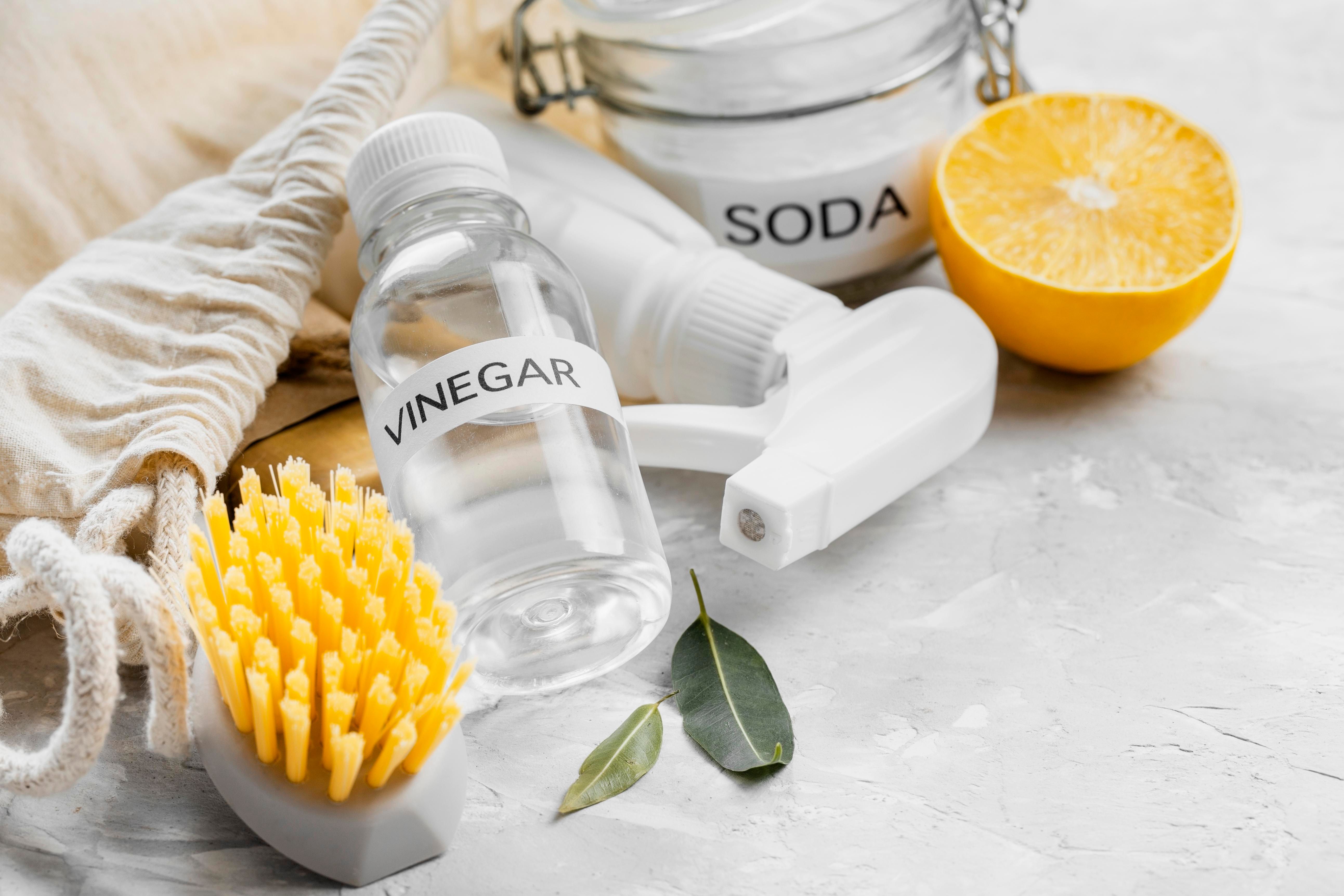
Option 3: Using a Plunger
A plunger is a simple but effective tool for dislodging blockages in the sink. By creating suction, it can help loosen and remove blockages caused by trapped food particles, grease, or other buildup. This method works well on blockages that aren’t too deep in the pipes.
Steps to unblock your sink using a plunger:
- Step 1: If your sink has an overflow drain (usually a small hole near the top edge), cover it with a wet cloth. This helps create a stronger seal and improves the plunging effect.
- Step 2: Add enough water to the sink to cover the plunger’s rubber cup. This water acts as a medium for creating the necessary suction.
- Step 3: Place the plunger directly over the drain, making sure it fully covers the opening.
- Step 4: Push the plunger up and down in quick, firm motions to create suction. Repeat this motion for about 20–30 seconds.
- Step 5: Lift the plunger to see if the water is draining. If it’s still blocked, repeat the plunging process until the clog clears.
- Step 6: Once the blockage is gone, flush the drain with hot water to help wash away any loosened residue.
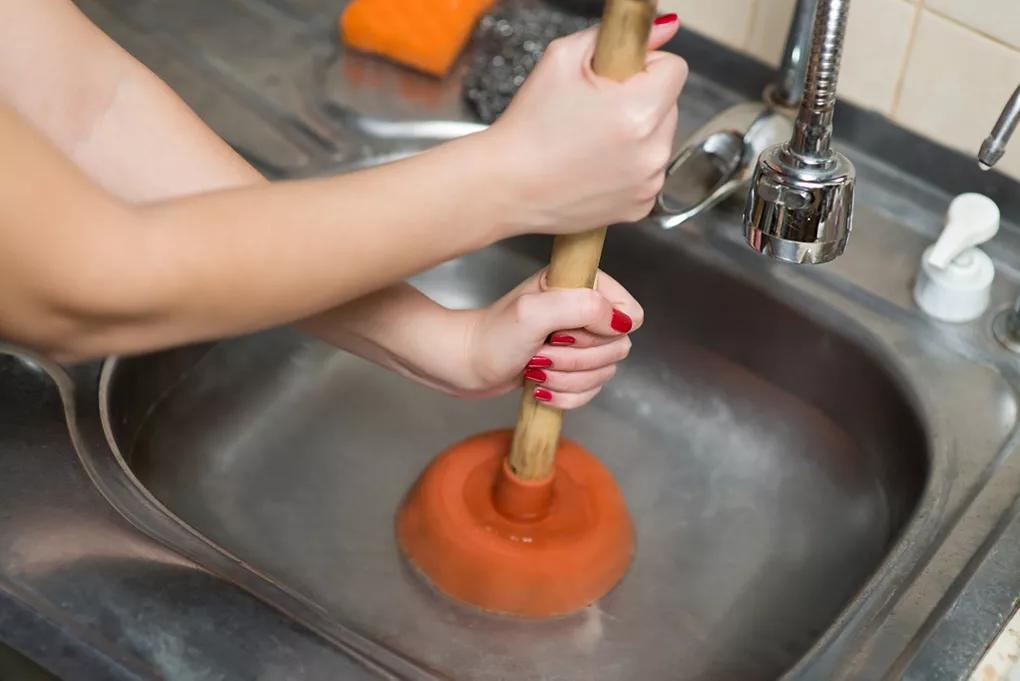
Option 4: Checking and cleaning the sink trap
The sink trap, also known as the P-trap, is the curved pipe beneath your sink designed to prevent sewer gases from coming up through the drain. Over time, it can accumulate food particles, grease, hair, and other debris, leading to blockages. Cleaning the sink trap is an effective way to clear clogs and restore proper drainage.
Steps to unblock your sink by cleaning the sink trap:
- Step 1: Position a bucket directly beneath the trap to catch any water or debris that may spill when you remove it.
- Step 2: Using a wrench or by hand (if the nuts aren’t too tight), carefully loosen the slip nuts on both ends of the trap.
- Step 3: Once the nuts are loose, gently remove the trap. Be prepared for some water and debris to come out.
- Step 4: Check inside the trap for any buildup, and use an old toothbrush or a small brush to scrub away any blockages. Rinse the trap with warm water to remove remaining debris.
- Step 5: Secure the trap back in place by tightening the slip nuts. Make sure they are tight enough to prevent any leaks.
- Step 6: Run water in the sink to check if the blockage is cleared and the drainage is smooth.
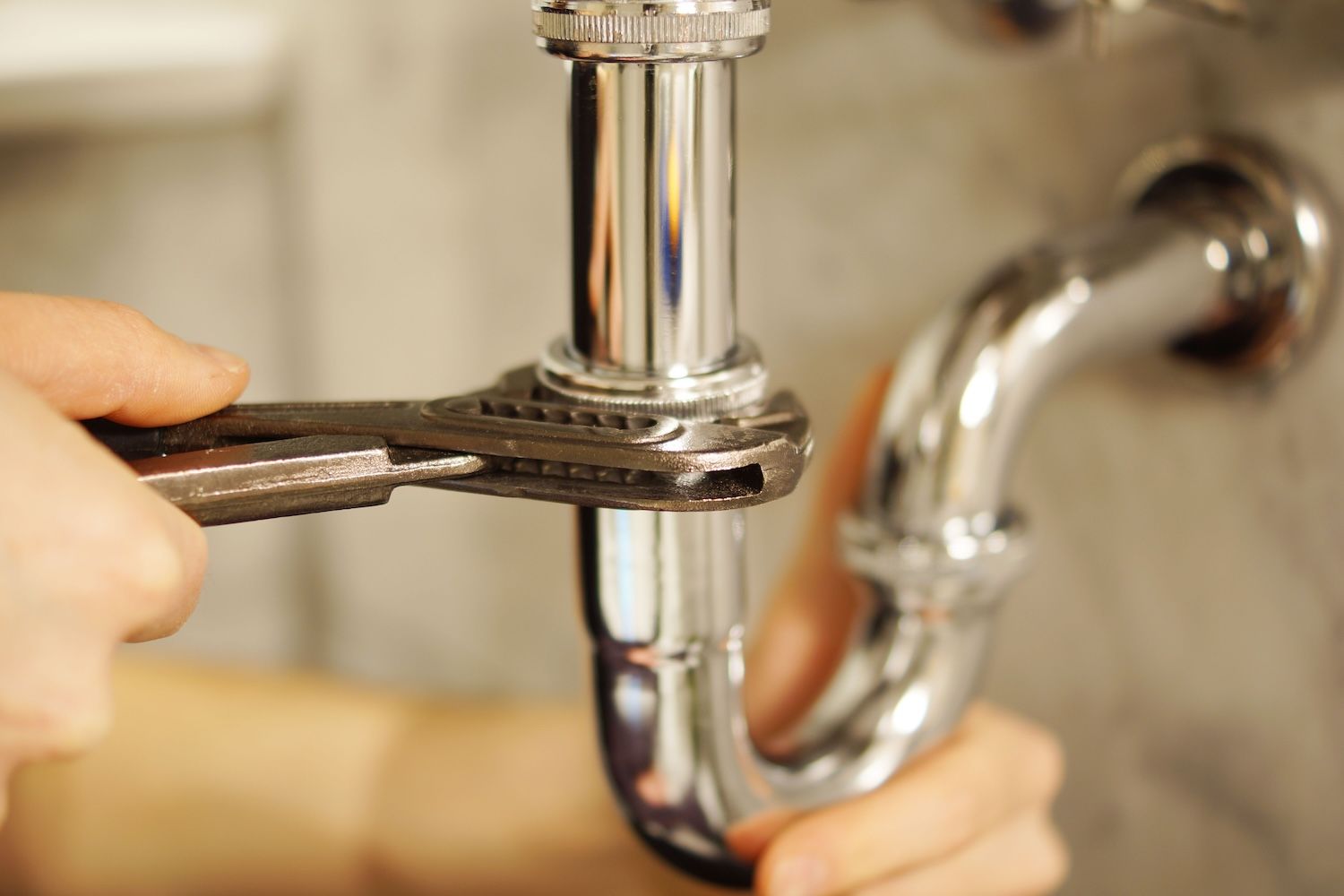
When to call a professional plumber
While DIY methods can effectively clear minor blockages, there are times when a professional plumber is essential. If your sink remains clogged after trying these solutions, or if you notice recurring blockages, unpleasant smells, or slow drainage throughout multiple sinks, it’s best to call in an expert. A licensed plumber can diagnose complex issues, provide specialised tools, and ensure a thorough, long-lasting fix. Don’t hesitate to seek professional help to prevent further damage to your plumbing system.
For professional help with stubborn blockages or other plumbing concerns, Fusion Plumbing and Electrical Services is here to assist! Whether it’s an emergency or routine maintenance, we offer reliable and affordable services across London. Contact us today to get your sink flowing smoothly again!